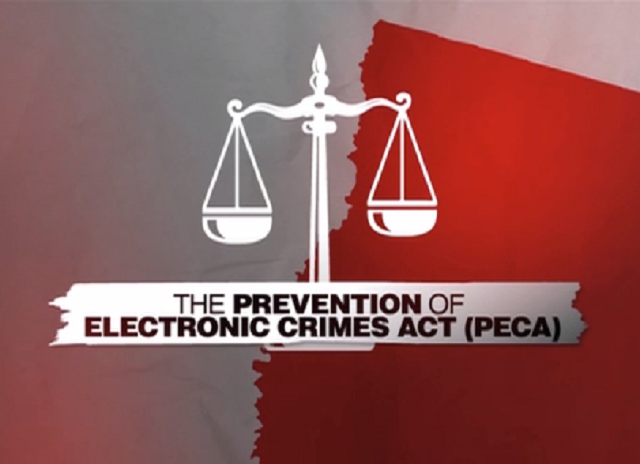On Monday, Justice Inam Amin Minhas of the Islamabad High Court (IHC) presided over a critical hearing involving several petitions aimed at nullifying the recently passed Prevention of Electronic Crimes Act (PECA) Amendment Act 2025, a law that has triggered serious concern among journalists, legal experts, and civil society.
The petitions challenging the constitutional validity of the amendment were filed by the Pakistan Federal Union of Journalists (PFUJ), several well-known television anchors, and the Islamabad High Court Journalists Association. These groups argue that the amendment drastically expands state control over digital expression and restricts fundamental rights such as freedom of speech and access to information.
The federal government has already submitted its official response to the court. During the hearing, a government lawyer noted that the provincial governments have also been made respondents in the case, making it a broader, more complex constitutional matter. Advocate Imran Shafiq informed the bench that an earlier technical objection from the IHC Registrar’s Office had been addressed and resolved, allowing the petitions to proceed formally.
Justice Inam Amin Minhas instructed the petitioners’ lawyers to begin presenting their arguments in detail. Representing PFUJ, Dr. Yasir Aman Khan opened the case by explaining the historical context of the original PECA law. He informed the court that the original PECA legislation was enacted in 2016, but the 2025 Amendment Act made sweeping changes by removing several key clauses and introducing entirely new provisions that many believe are vague and overreaching.
One of the most controversial additions to the amended act is the establishment of a Social Media Complaint Council, which significantly expands the law’s jurisdiction and monitoring capabilities. Dr. Yasir noted that the amended act not only imposes new restrictions but also gives administrative bodies the power to interpret and enforce these rules with little judicial oversight.
Justice Minhas directed the petitioners to clearly outline what the original Code of Conduct under PECA entailed and how the 2025 amendments have altered it. He emphasized the importance of identifying specific clauses that have been changed or introduced so the court can properly assess the constitutional implications.
The legal challenge follows the National Assembly’s quiet approval of the PECA Amendment Act 2025 earlier this year, passed as part of a supplementary agenda without public consultation or debate. The amendments grant the federal government significantly broader authority to regulate online content and impose penalties on digital activities deemed offensive, misleading, or against national interest.
A central feature of the amended law is the creation of the Digital Rights Protection Authority (DRPA). This new authority is empowered to remove online content, block access to certain digital platforms, and penalize individuals for sharing prohibited material. Critics argue that these powers are ill-defined and could be used to suppress dissent, limit journalistic freedom, and stifle legitimate political debate on social media.
Furthermore, the law has broadened the definition of what constitutes a “social media platform.” Now, even tools, websites, applications, and software used to access or distribute content fall under regulatory control. This means any digital medium, including messaging apps and private communication channels, could be monitored and restricted under the new provisions.
One of the most alarming aspects of the amendment is the punishment clause targeting individuals who share parliamentary or provincial assembly content that has been officially expunged. Under the revised rules, those found sharing such material on social media could face up to three years of imprisonment and a fine of Rs. 2 million. This clause has been widely condemned by media organizations as an attempt to curb transparency and shield parliamentary proceedings from public scrutiny.
Another major structural change introduced by the 2025 amendment is the disbandment of the FIA’s Cybercrime Wing, which was originally responsible for enforcing PECA. It is set to be replaced by a more centralized and stricter enforcement framework under the DRPA, raising further questions about oversight, accountability, and fair trial protections.
Legal analysts and rights groups argue that these sweeping amendments are not only undemocratic but also violate the fundamental rights enshrined in Pakistan’s Constitution, including Article 19 (freedom of speech) and Article 19A (right to information). They contend that the vague language used in the new provisions allows arbitrary enforcement, opening the door to political victimization and mass surveillance.
The Islamabad High Court’s review of the PECA 2025 Amendment Act could prove to be a landmark case for digital rights and freedom of expression in Pakistan. If the court finds the amendments unconstitutional, it could force the government to revisit or roll back key parts of the law. On the other hand, if the amendments are upheld, they could set a precedent for even greater state control over digital spaces.
As the legal proceedings continue, journalists, activists, and digital rights advocates across the country are watching closely. The outcome of this case will likely determine not just the future of online freedom in Pakistan, but also the limits of executive power in regulating digital discourse.
For now, all eyes remain on the Islamabad High Court as it deliberates over one of the most consequential legal challenges of Pakistan’s digital age.
















